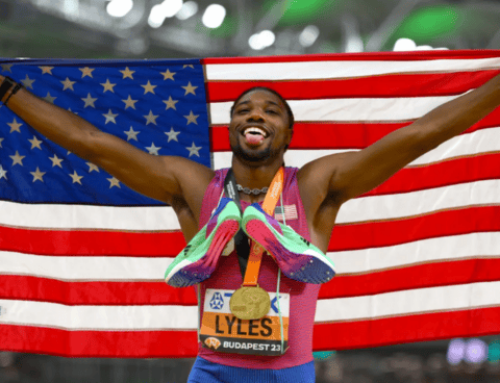Caffeinated Gum: A Secret Weapon for Athletes
Caffeine is by far the most widely used drug in the world. Yes, it is classified as a psychoactive drug because it influences our thoughts and feelings. And we all know some people that are addicted to it, with some displaying withdrawal symptoms in as little as one day without it. Caffeine is also considered a stimulant. Most people that consume caffeine can feel its effects. In general, caffeine makes us: more energetic, alert, happy, and productive in general. Sounds like a great drug, right? But like any drug, the highs are high, and the lows are low. Everyone has heard of the caffeine “crash.” Everybody reacts to caffeine a little differently. Timing, dosage, and what you consume with it significantly affect how caffeine directly affects you, which can include a dark side. Unfortunately, caffeine can also increase anxiety, cause heart palpitations, poor digestion, and insomnia, all of which can lead to many health problems.
Caffeine consumption is consumed regularly in the workforce and even at home. It’s also popular among athletes. The research is very interesting on caffeine in regards to sports performance. Most research demonstrates that a caffeine boost does not include making you stronger, faster, or more powerful. However, it does appear that caffeine boosts cognition and endurance. This can lead to better in-game decision-making, quicker reaction times, and boosts the ability to last longer at higher rates of speed. Those are significant advantages that any athlete could benefit from. The issue with caffeine, however, is its delivery system. For athletes to get the best benefits of caffeine, it must work immediately without causing detrimental side effects.
The Problem with Caffeine Products
Caffeine is primarily consumed as a liquid. Coffee, soda, and tea are the most popular choices. Here are the issues:
- Tea is too low in caffeine.
- Coffee has enough, but it isn’t easy to consume quickly and isn’t appetizing before a sporting match.
- A lot of liquid must be consumed to get a high dose of caffeine from soda. When an athlete needs caffeine in a pinch, soda isn’t an easy way to consume caffeine quickly and can cause bloating and gas, given that it’s a carbonated beverage.
Caffeine pills exist, but their delivery system is slow. Chocolate naturally has caffeine, but only in small amounts. So food is out too.
Caffeinated Gum
So, imagine you are a basketball player. For whatever reason, you are already exhausted at halftime when you usually aren’t. The team needs you. YOU need you. You need a boost of caffeine. No, you can’t chug a bottle of soda, and you certainly aren’t drinking coffee. That’s where caffeinated gum comes in.
Caffeinated gum was invented in the ’70s but gained popularity in the health and performance sector recently. Given recent research that demonstrates athletes can perform at their high levels for more extended periods of time when caffeinated, the fast-acting delivery system of chewing caffeinated gum is the most efficient way to get caffeine in the bloodstream without having to chug 30 oz. of bubbly soda. The secret sauce is in the concept of gum. You chew it, but don’t swallow it. Chewing with saliva naturally pulls out the flavors of gum into an easy-to-digest liquid form. In this case, caffeine is naturally pulled out of the gum, down the hatch, and into the bloodstream. Research shows that the effects of caffeine from gum are achieved in as little as 5 minutes.
Side note: one research paper found that caffeinated gum increased salivary testosterone, whereas all other caffeine products did not. Does this make caffeine gum a PED? Probably not. But it’s worth investigating more. Perhaps more research will be done on that.
The optimal dose isn’t clear. There isn’t enough research, and every athlete will react differently. Most research points to around 200-300mg of caffeine for optimal performance. I would strongly recommend starting with a lower dose and seeing how your body reacts, however.
Any athlete can have caffeine gum in their bag and quickly get the “energy boost” during halftime or even a timeout. No need to consume a lot of liquid or eat calories. Chewing caffeinated gum is the best way to quickly deliver caffeine into the bloodstream with ease, which can lead to improved performance. Although a drug, caffeine is deemed safe to consume and is an approved supplement by all professional, collegiate, and recreational levels of sport.
Practical Recommendations
To make a quick recommendation on caffeinated gum, I would suggest:
- Consume 200-300mg of caffeinated gum roughly 10 minutes prior to competition or immediately during halftime or a time out
- Do not exceed 400mg of caffeine in a day, as beyond that is not deemed safe
- Always experiment outside of competition first to be sure your body positively reacts to the dosage
References
RECOMMENDED FOR YOU
MOST POPULAR
Caffeinated Gum: A Secret Weapon for Athletes
Caffeine is by far the most widely used drug in the world. Yes, it is classified as a psychoactive drug because it influences our thoughts and feelings. And we all know some people that are addicted to it, with some displaying withdrawal symptoms in as little as one day without it. Caffeine is also considered a stimulant. Most people that consume caffeine can feel its effects. In general, caffeine makes us: more energetic, alert, happy, and productive in general. Sounds like a great drug, right? But like any drug, the highs are high, and the lows are low. Everyone has heard of the caffeine “crash.” Everybody reacts to caffeine a little differently. Timing, dosage, and what you consume with it significantly affect how caffeine directly affects you, which can include a dark side. Unfortunately, caffeine can also increase anxiety, cause heart palpitations, poor digestion, and insomnia, all of which can lead to many health problems.
Caffeine consumption is consumed regularly in the workforce and even at home. It’s also popular among athletes. The research is very interesting on caffeine in regards to sports performance. Most research demonstrates that a caffeine boost does not include making you stronger, faster, or more powerful. However, it does appear that caffeine boosts cognition and endurance. This can lead to better in-game decision-making, quicker reaction times, and boosts the ability to last longer at higher rates of speed. Those are significant advantages that any athlete could benefit from. The issue with caffeine, however, is its delivery system. For athletes to get the best benefits of caffeine, it must work immediately without causing detrimental side effects.
The Problem with Caffeine Products
Caffeine is primarily consumed as a liquid. Coffee, soda, and tea are the most popular choices. Here are the issues:
- Tea is too low in caffeine.
- Coffee has enough, but it isn’t easy to consume quickly and isn’t appetizing before a sporting match.
- A lot of liquid must be consumed to get a high dose of caffeine from soda. When an athlete needs caffeine in a pinch, soda isn’t an easy way to consume caffeine quickly and can cause bloating and gas, given that it’s a carbonated beverage.
Caffeine pills exist, but their delivery system is slow. Chocolate naturally has caffeine, but only in small amounts. So food is out too.
Caffeinated Gum
So, imagine you are a basketball player. For whatever reason, you are already exhausted at halftime when you usually aren’t. The team needs you. YOU need you. You need a boost of caffeine. No, you can’t chug a bottle of soda, and you certainly aren’t drinking coffee. That’s where caffeinated gum comes in.
Caffeinated gum was invented in the ’70s but gained popularity in the health and performance sector recently. Given recent research that demonstrates athletes can perform at their high levels for more extended periods of time when caffeinated, the fast-acting delivery system of chewing caffeinated gum is the most efficient way to get caffeine in the bloodstream without having to chug 30 oz. of bubbly soda. The secret sauce is in the concept of gum. You chew it, but don’t swallow it. Chewing with saliva naturally pulls out the flavors of gum into an easy-to-digest liquid form. In this case, caffeine is naturally pulled out of the gum, down the hatch, and into the bloodstream. Research shows that the effects of caffeine from gum are achieved in as little as 5 minutes.
Side note: one research paper found that caffeinated gum increased salivary testosterone, whereas all other caffeine products did not. Does this make caffeine gum a PED? Probably not. But it’s worth investigating more. Perhaps more research will be done on that.
The optimal dose isn’t clear. There isn’t enough research, and every athlete will react differently. Most research points to around 200-300mg of caffeine for optimal performance. I would strongly recommend starting with a lower dose and seeing how your body reacts, however.
Any athlete can have caffeine gum in their bag and quickly get the “energy boost” during halftime or even a timeout. No need to consume a lot of liquid or eat calories. Chewing caffeinated gum is the best way to quickly deliver caffeine into the bloodstream with ease, which can lead to improved performance. Although a drug, caffeine is deemed safe to consume and is an approved supplement by all professional, collegiate, and recreational levels of sport.
Practical Recommendations
To make a quick recommendation on caffeinated gum, I would suggest:
- Consume 200-300mg of caffeinated gum roughly 10 minutes prior to competition or immediately during halftime or a time out
- Do not exceed 400mg of caffeine in a day, as beyond that is not deemed safe
- Always experiment outside of competition first to be sure your body positively reacts to the dosage
References












